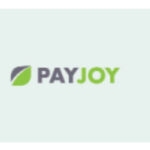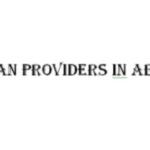Running a private home daycare in Ohio can be a fulfilling career, providing essential childcare services to the community.
However, operating a daycare also comes with significant responsibilities and risks. To safeguard your business and the children under your care, having comprehensive private home daycare insurance is crucial.
This article explores the importance of such insurance, the types of coverage available, practical tips for selecting the best policy to meet your needs, and insights from real-life experiences and testimonials.
What Is Private Home Daycare Insurance?
Why Do You Need It?
Private home daycare insurance provides financial protection for daycare providers against risks such as accidents, injuries, and property damage.
As a daycare operator, you are responsible for the safety and well-being of the children in your care. Without insurance, even a minor incident could lead to costly legal and medical expenses.
Additionally, having insurance shows professionalism and builds trust with parents.

Childcare environments are dynamic, with active children often encountering minor accidents, spills, or mishaps. While safety measures and protocols significantly reduce risks, unexpected situations can still arise.
Insurance ensures that these incidents do not jeopardize the financial health of your business or your ability to continue providing care. Moreover, many parents inquire about insurance coverage before enrolling their children, making it a key factor in their decision-making process.
Types of Coverage Available
Private home daycare insurance typically includes multiple forms of coverage:
- General Liability Insurance: Covers accidents and injuries on your property. For example, if a child slips and falls, this coverage can handle medical expenses and any potential legal claims.
- Professional Liability Insurance: Protects against claims of negligence or improper care. This includes situations where a parent may allege inadequate supervision or failure to follow agreed-upon care plans.
- Property Insurance: Covers damages to your home daycare premises and equipment. If a fire or flood damages your property, this coverage ensures you can repair or replace essential items without major financial strain.
- Abuse and Molestation Coverage: Specifically designed for allegations of abuse, this is a critical component for any childcare provider. While rare, such allegations can have severe financial and reputational consequences, making this coverage indispensable.
- Workers’ Compensation Insurance: Required if you employ staff, this covers workplace injuries and related medical costs. It also protects you from legal liabilities related to employee injuries.
Importance of Private Home Daycare Insurance in Ohio
Legal Obligations and Compliance
Ohio’s laws require daycare operators to comply with specific licensing and insurance regulations. Depending on the size and nature of your daycare, you may need general liability insurance as part of your licensing requirements.
Licensing authorities in Ohio often conduct inspections to ensure compliance with these regulations. Failure to maintain adequate coverage can result in penalties, loss of license, or even legal action.
Having insurance is not just about meeting legal obligations; it also provides a safety net in case of unexpected events.
Lawsuits or claims can arise from incidents beyond your control, such as injuries caused by defective toys or equipment. Insurance ensures you can navigate these challenges without risking your business’s stability.
Enhancing Business Reputation
Having proper insurance not only protects your business but also enhances its reputation. Parents are more likely to trust a daycare provider who demonstrates a commitment to safety and preparedness.
Insurance coverage can set you apart from competitors, providing peace of mind to families seeking reliable childcare services.
In a competitive market, building trust with parents is essential. Displaying certificates of insurance coverage or mentioning your policy during consultations with prospective clients can reassure them that their children will be cared for in a secure environment.
This added layer of professionalism can lead to word-of-mouth referrals and long-term client relationships.
Types of Coverage for Daycare Operators

General Liability Coverage
General liability insurance is the cornerstone of any daycare insurance policy. It covers costs associated with:
- Injuries sustained by children, staff, or visitors on your premises.
- Property damage caused by daycare activities.
- Legal defense fees and settlements in case of lawsuits.
For instance, if a child trips on a toy and requires medical attention, general liability insurance can cover the associated costs.
This coverage also extends to incidents involving parents or guardians visiting your daycare, ensuring comprehensive protection.
Professional Liability Coverage
Also known as errors and omissions insurance, this coverage protects against claims of negligence, failure to provide adequate supervision, or other professional errors.
For example, if a child sustains an injury due to inadequate supervision, this policy can cover legal expenses and damages.
Additional Coverages to Consider
Daycare operators in Ohio should also consider:
- Commercial Auto Insurance: If you transport children, this is essential. It provides coverage for accidents or injuries that occur during transportation.
- Business Interruption Insurance: Covers lost income due to unforeseen closures, such as those caused by natural disasters or pandemics.
- Umbrella Policies: Provide extra liability coverage beyond standard limits, offering additional financial protection.
How to Choose the Right Insurance Policy?
Assessing Your Needs
Begin by evaluating your daycare’s unique needs. Consider factors like the number of children you care for, your property size, and whether you transport children. Assessing these elements helps determine the type and level of coverage required.
Create a checklist of potential risks specific to your daycare. For example, do you have a swimming pool or playground equipment? Are there pets on the premises? Understanding these risks will guide your discussions with insurance providers and help ensure comprehensive coverage.
Comparing Quotes and Reviews
Obtaining quotes from multiple providers ensures you get the best value for your premium. Reviews can offer insight into customer experiences, claims processes, and overall satisfaction. Pay attention to insurers’ reputations within the childcare industry.
Working with an Insurance Agent
An experienced insurance agent can guide you through the complexities of daycare insurance. They can help tailor policies to fit your specific needs and ensure compliance with Ohio’s regulations.
Agents often have access to multiple insurers, allowing them to provide competitive quotes and valuable advice.
Factors Affecting Insurance Premiums

Business Size and Location
The size of your daycare and its location significantly impact premiums. Larger operations and facilities in high-risk areas may face higher costs. Conversely, smaller daycares in low-risk neighborhoods may benefit from lower premiums.
For instance, a daycare in an urban area with higher traffic and crime rates may pay more than one in a suburban or rural location. Additionally, the number of children you care for and the square footage of your facility can influence premium rates.
Claims History
A clean claims history indicates low risk, which can result in lower premiums. Conversely, past claims may increase your insurance costs.
Safety Measures and Risk Management
Implementing safety measures, such as installing childproof locks and maintaining first-aid training, can reduce premiums. Insurers often provide discounts for proactive risk management practices.
Regular safety audits and staff training sessions can further demonstrate your commitment to minimizing risks.
Benefits of Reading Reviews Before Purchasing
Understanding Customer Experiences
Reviews help you understand how insurers treat their clients, especially during claims processes. Positive experiences indicate reliability and efficiency, while negative reviews can highlight potential red flags.
Identifying Potential Red Flags
Common complaints, such as delayed claims processing or inadequate customer service, should raise concerns. Identifying these issues early can save you from future frustrations.
Making an Informed Decision
By analysing reviews, you can choose an insurer that aligns with your expectations, ensuring a smooth and supportive experience.
Reviews from other daycare providers in Ohio can be particularly valuable, as they offer insights into industry-specific concerns and solutions.
Analyzing Private Home Daycare Insurance Reviews in Ohio
Common Themes in Reviews
Reviews often highlight key aspects such as coverage comprehensiveness, customer service quality, and premium affordability. Customers frequently praise insurers offering clear policies and responsive support.
Evaluating Coverage Options
Look for reviews that discuss specific coverage types and limits. Understanding what other daycare providers find valuable can help you select a policy tailored to your needs.
Balancing Cost and Coverage
While affordability is important, choosing the cheapest policy without sufficient coverage can lead to financial vulnerability. Reviews can help identify policies that strike a balance between cost and protection.
Common Challenges Faced by Daycare Providers
Managing Risks and Safety
Ensuring the safety of children is a top priority but also a significant challenge. Implementing rigorous safety protocols and maintaining compliance with regulations can mitigate risks.
Dealing with Legal and Regulatory Requirements
Navigating Ohio’s legal and licensing requirements can be complex. Regularly updating your knowledge and consulting with legal experts can ease the process.
Handling Financial Pressures
Balancing operating costs with affordable fees is a common challenge for daycare providers. Insurance premiums add to financial pressures, but they are a necessary investment in your business’s security.
Comparing Top Insurance Providers in Ohio
Key Factors to Consider
When comparing insurers, consider factors like:
- Policy limits and exclusions.
- Customer service ratings.
- Claims process efficiency.
- Premium affordability.
Top Insurers in Ohio
Some of the top providers for daycare insurance in Ohio include:
- State Farm: Known for its comprehensive policies and excellent customer service.
- Nationwide: Offers flexible coverage options and competitive rates.
- Markel Insurance: Specialises in childcare insurance, providing tailored policies for daycare operators.
Making the Right Choice
Selecting the right provider involves balancing coverage needs with budget constraints. Consulting with industry peers and insurance agents can help ensure a well-informed decision.
Additionally, taking the time to thoroughly review policy details and ask questions can prevent misunderstandings and ensure optimal coverage.
How to File a Claim Effectively?
Gathering Necessary Information
Document the incident thoroughly, including photographs, witness statements, and medical records if applicable. Detailed documentation is crucial for a smooth claims process.
Contacting Your Insurance Provider
Notify your insurer immediately after an incident. Provide all necessary details and follow their guidance on submitting a claim.
Following Up and Staying Informed
Regularly check the status of your claim and communicate with your insurer to address any issues promptly. Staying proactive ensures a timely resolution.
Tips for Reducing Insurance Costs
Implementing Safety Measures
Investing in safety features and regular staff training can lower risks and potentially reduce premiums. Many insurers offer discounts for such initiatives.
Reviewing and Updating Coverage Regularly
Periodically review your policy to ensure it aligns with your current needs. Updating coverage can prevent overpaying for unnecessary protection.
Working with an Experienced Insurance Agent
An insurance agent can help identify cost-saving opportunities and ensure you’re not missing essential coverage areas.
Frequently Asked Questions
What is the average cost of private home daycare insurance in Ohio?
The cost varies widely but typically ranges between $500 and $1,500 annually, depending on factors like coverage limits and daycare size.
Is daycare insurance required by law in Ohio?
Yes, most daycare operators in Ohio must carry liability insurance to comply with licensing requirements.
Can I bundle daycare insurance with other types of coverage?
Many insurers offer bundling options, such as combining daycare and homeowner’s insurance, which can reduce overall costs.
What should I look for in a daycare insurance policy?
Focus on comprehensive coverage, affordable premiums, and strong customer support. Ensure the policy includes essential protections like general and professional liability.
How can I ensure I’m getting the best rate on my daycare insurance?
Compare quotes from multiple insurers, maintain a clean claims history, and implement safety measures to lower risks.
What steps should I take if my insurance claim is denied?
Request a detailed explanation from your insurer, gather additional evidence, and consider appealing the decision or seeking legal advice if necessary.
Conclusion
Private home daycare insurance in Ohio is an essential investment for childcare providers. By understanding the types of coverage available, comparing policies, and implementing safety measures, you can protect your business and build trust with parents.
Thorough research, informed decisions, and proactive risk management will ensure your daycare operates smoothly and securely for years to come.
With the right policy in place, you can focus on providing excellent care to children while safeguarding your business against unforeseen challenges.










